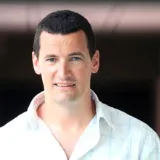17 January 2020
Unique cells identified could lead to potential ovarian cancer treatment
Researchers have identified a unique subset of cells that contribute to the spread of ovarian cancer which could lead to promising new treatments.

A team led by Toby Lawrence, Professor of Inflammation Biology, identified a sub-type of macrophage cells in ovarian cancer tissues that were able to increase the spread of ovarian cancer.
This is the first time these specific cells have been discovered in ovarian cancer tissues.
Ovarian cancer is the sixth leading cause of cancer-related death in women worldwide and has a particularly poor prognosis because most patients are diagnosed in late stages when tumours have spread throughout the abdomen.
In the paper published in the Journal of Experimental Medicine, researchers used mouse models with ovarian cancer to study how these cells contribute to the spread of tumours. They used a technique called single-cell RNA sequencing to identify different cells present in ovarian cancer metastases.
Once they identified these specific cells, they were able to selectively delete these cells and prevent the spread of ovarian cancer cells in mice.
They also used targeted drugs that specifically killed these cells and saw a reduction in the spread of cancer throughout the body.
Professor Toby Lawrence said “Ovarian cancer is particularly hard to treat because patients are normally diagnosed at late stages, so there is a desperate need for new treatments. Our study suggests that targeted depletion of macrophages in ovarian cancer patients could significantly impair the spread of disease.”
The researchers are now testing human cancer samples for the same cells and developing drugs that will target them specifically with the aim to reduce the spread of ovarian cancer.
“We are particularly excited by the prospect of developing targeted drugs to deplete these cells to treat metastatic of ovarian cancer and possibly other cancers” added Professor Lawrence.

